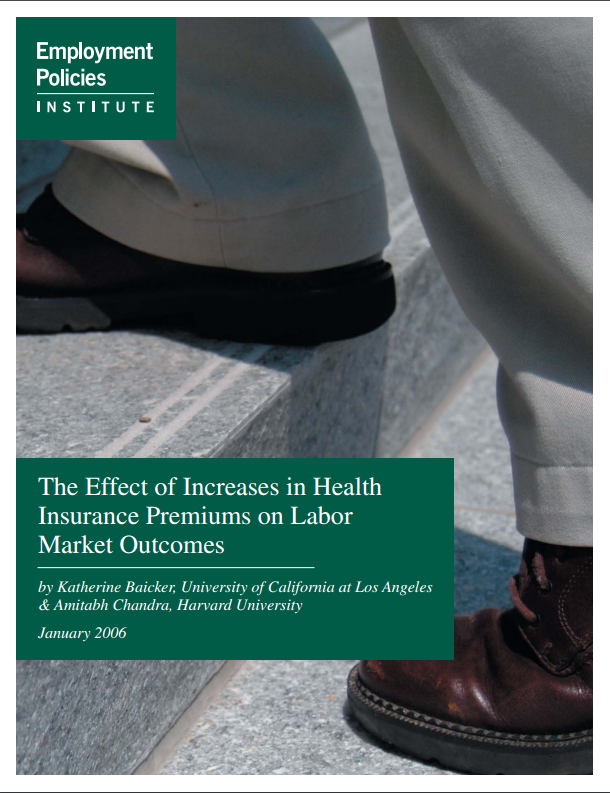In the United States, two-thirds of the non-elderly population is covered by employer-provided health insurance. The cost of this insurance has increased by more than 59 percent since 2000, with no accompanying increase in the scale or scope of benefits. These increases in health insurance premiums may have significant effects on both health insurance markets and labor markets, including changes in the number of jobs, hours worked per employee, wages, and compensation packages. The increase in premiums could increase unemployment and uninsurance, as employers face a choice between discontinuing health insurance benefits or employing fewer workers as benefit costs rise.
Understanding how labor markets adjust to increased health insurance costs is of growing policy importance. Proposals to cover the uninsured often rely on “employer mandates” that would require employers to cover eligible workers. The effects of such proposals on employment, wages, and health insurance coverage will be driven by the characteristics of labor supply and demand, institutional constraints on wages and compensation packages, and how much workers value the increase in health insurance costs, and must thus be estimated empirically.
Measuring the effect of increases in health insurance costs on labor markets is an inherently difficult problem, however, both because of data constraints and because many unobserved factors may affect both employment and insurance coverage. Previous studies have found some effects of premiums on hours worked and wages, but have not been able to disentangle confounding factors effectively. We use a novel strategy based on the changes in health care costs driven by the recent medical malpractice crisis to uncover the causal effect of increases in the cost of benefits on labor market outcomes.
We find that the cost of increasing health insurance premiums is borne primarily by workers. Workers with health insurance through their employer see a decrease in their wages as health insurance premiums rise, so that they bear the full cost of the premium increase. Some workers, such as those low-wage workers whose wages cannot be lowered, lose their jobs as the cost of benefits increases. Other workers are moved from full-time jobs with benefits to part-time jobs without benefits as the costs of benefits rise, perhaps because non-discrimination clauses prevent firms from discontinuing coverage only for those workers who value it least.
These results have strong implications for policies designed to cover the uninsured. The cost of employer health insurance mandates that raise the cost of employment are likely to be borne by workers through reduced wages. If part-time workers or the employees of small firms are exempt from the mandate, employers are likely to substitute uncovered jobs for covered ones, undermining the net effect of the mandate on insurance rates and distorting labor markets. Rising health insurance costs may thus place an increasing burden on workers, leading to both uninsurance and unemployment.
